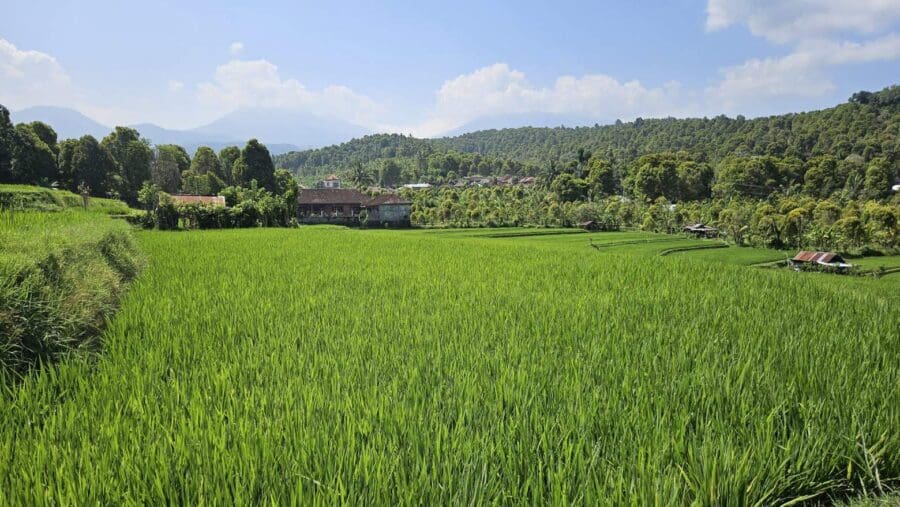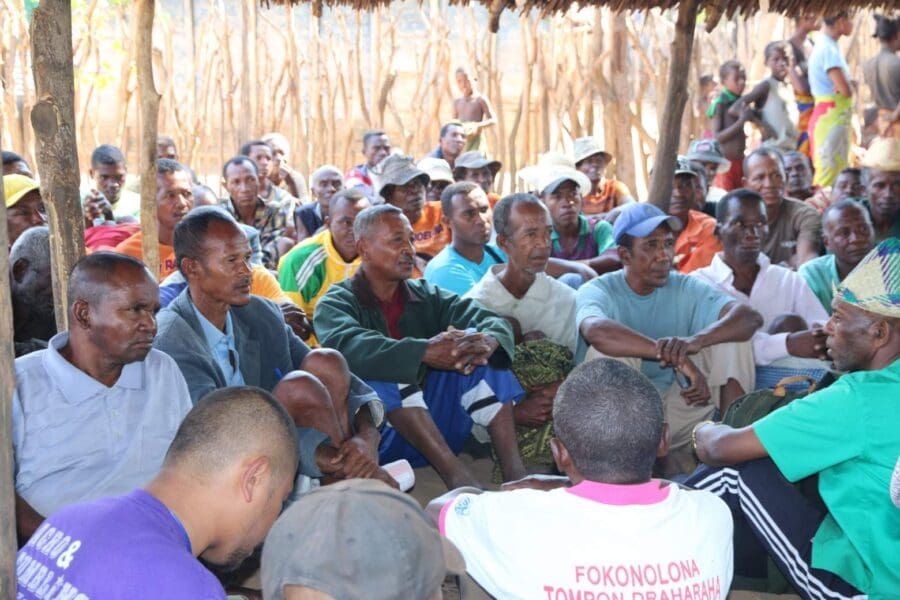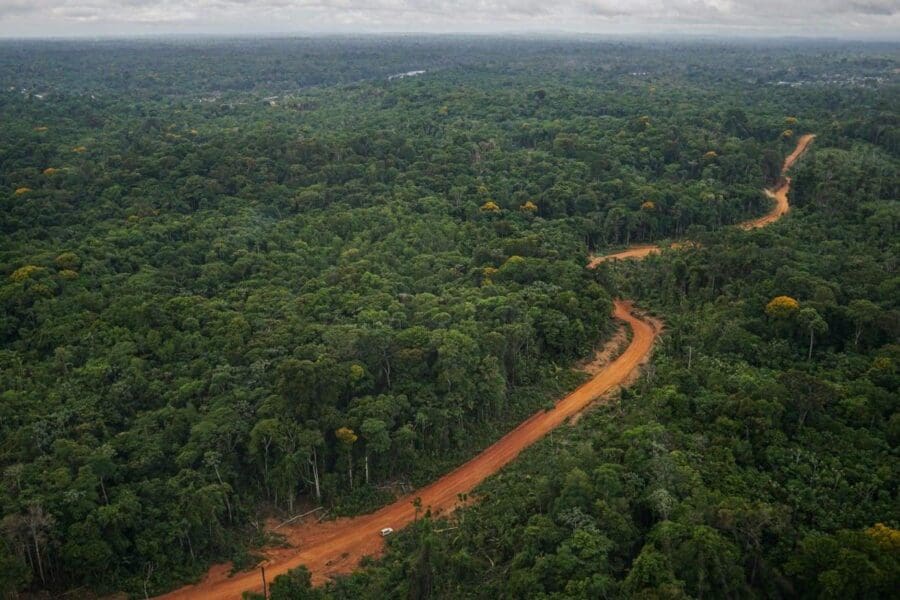Indigenous Peoples, Afro-descendant Peoples, and local communities—especially women and youth—have been a key part of national and international-level legal developments and debates on land tenure for decades, and 2023 was no exception. Their leadership and willingness to raise their voice draw attention to the fact that although progress has been made, the fight for rights is not yet over.
With the adoption of international legal frameworks such as the Paris Climate Agreement, the UNFCCC, and the UN Convention on Biological Diversity, conservation and climate change goals have become a part of states’ international legal obligations. Following decades of advocacy by rightsholders and their allies, land tenure security for communities, and especially community women, is now recognized as an integral component of the 2030 Agenda, without which the objectives of the Sustainable Development Goals (SDGs), the Kunming–Montréal Global Biodiversity Framework, and Paris Agreement cannot be achieved.
In this review, we provide a legal snapshot of some of the changes and developments that occurred in 2023. We delve into the shifts, pivotal moments, and groundbreaking strides that defined the year at the sub-national, national, regional, and international levels. From local policy implementation to the adoption of new international treaties, 2023 was a tapestry of progress and challenges.
Join us as we navigate the legal developments that shaped the discourse on land and water tenure rights for Indigenous Peoples, Afro-descendant Peoples, and local communities; conservation; climate change; and collective rights in 2023.

We tracked at least 19 changes or developments at the country level for 2023, including major successes arising from collective struggles across North and South America. In a historic decision, Canada agreed to settle a class-action lawsuit with 325 First Nations seeking reparations for the loss of language and culture brought on by so-called Indian residential schools, for CAD $2.8 billion.
In a case brought by 17 victims’ families, the U.S. District Court for the Southern District of Florida ordered banana company Chiquita Brands International to stand trial for illegally financing paramilitary death squads in Colombia.
Successful judicial challenges have also been achieved in Brazil, Panama, Ecuador, and Colombia protecting communities’ rights to land tenure when threatened by extractive projects.
Other legal developments across the world include:
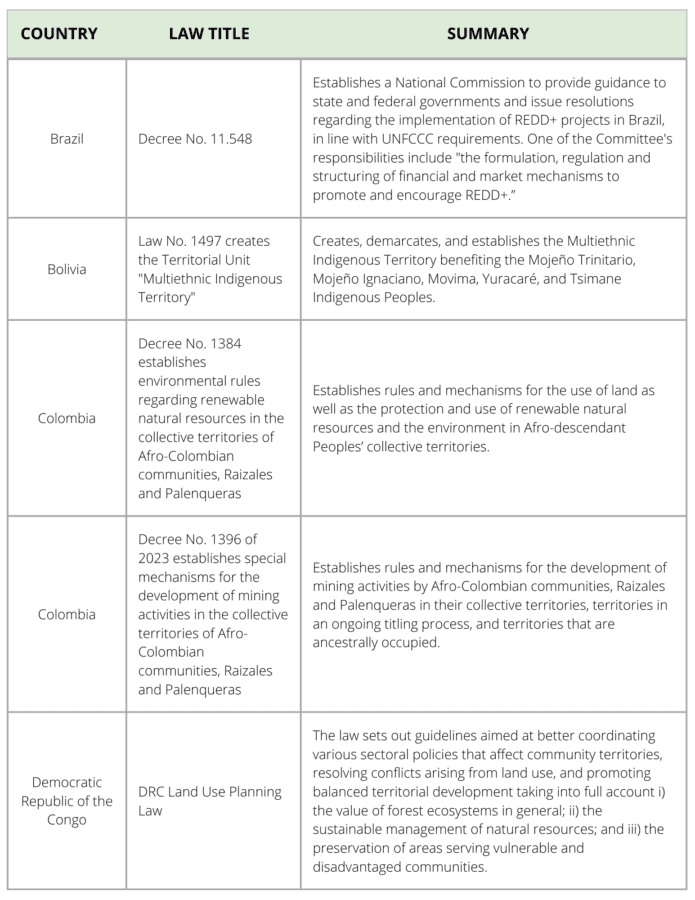
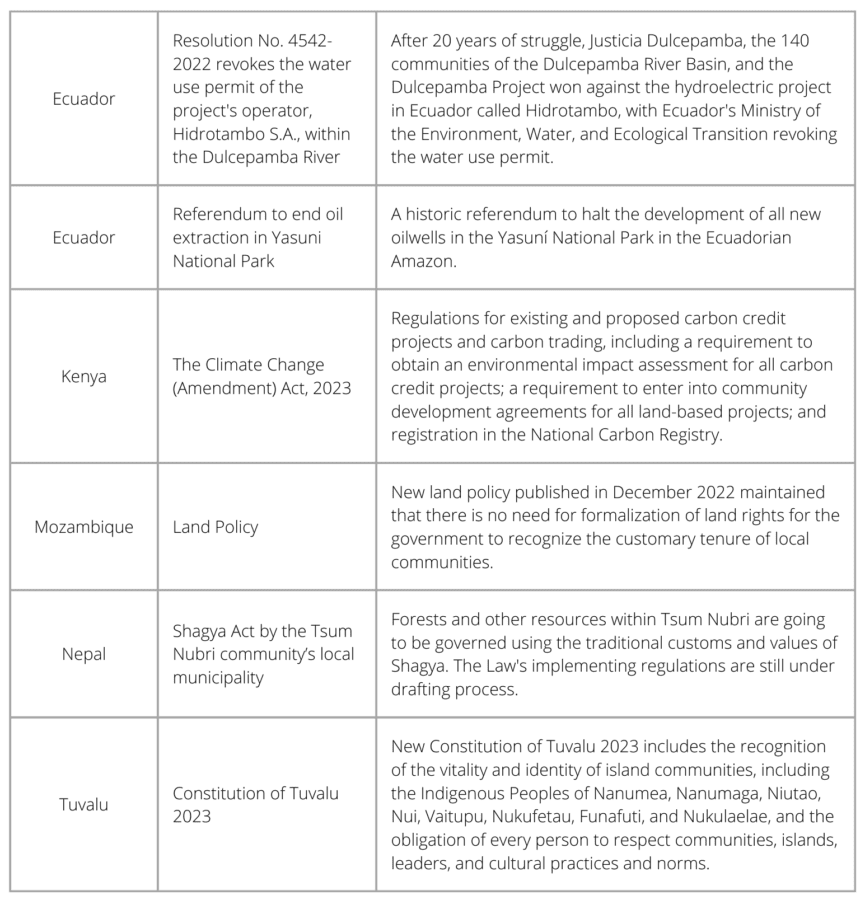
Despite these wins, developments backtracking or denying rights also occurred in 2023 and challenges remain.
In Peru, political protests were widespread, including protests reflecting the demands of peasant communities and Indigenous Peoples calling for equal access to rights without discrimination, greater political representation, prior consultation concerning extractive projects, and a fairer distribution of wealth generated by these projects. In May, the Inter-American Commission for Human Rights found that there was widespread deterioration of public debate, with major stigma based on ethnic-racial and regional grounds. The Commission also recorded two significant instances of serious human rights violations in Ayacucho and Juliaca, with potential evidence of extrajudicial killings and abuse of state force.
In Australia, the fight for constitutional recognition of Aboriginal Australians was unsuccessful. The constitutional referendum that proposed an alteration to the Australian Constitution recognizing Indigenous Peoples by prescribing a body called the Aboriginal and Torres Strait Islander Voice failed.
Additionally, conservation measures have caused—and continue to cause—human rights violations worldwide. For example, voluntary carbon markets came under scrutiny when research published as part of UC Berkeley’s Carbon Trading Project found that the system is not fit for purpose, that it generates inflated environmental impacts, and fails to protect forest communities.
On the international stage, RRI has identified at least 25 legal events or changes from 2023 that include judicial decisions, quasi-judicial decisions, reports, guidelines, treaties, resolutions, and implementation-related actions. These are:
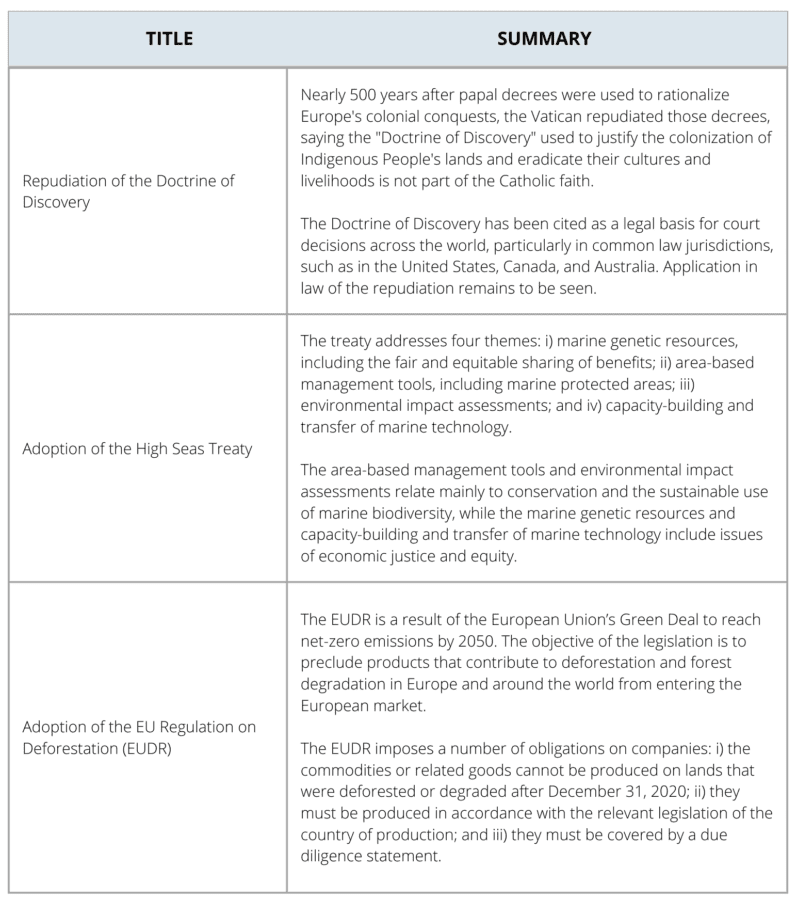
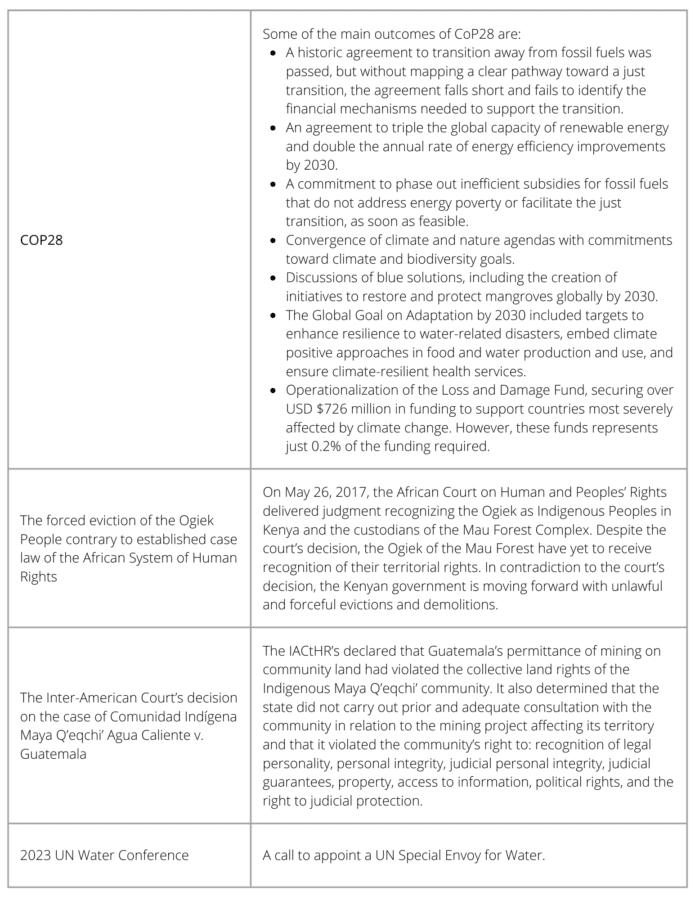
In a world constantly evolving, this review is a glimpse into the state of rights in 2023. As in the past year, 2024 already promises to be an equally eventful year in international and domestic legal developments for territorial rights and conservation.
With land reform and legal developments on forestry already taking place in Africa and Latin America, and the upcoming International Court of Justice legal opinion on climate change, 2024 offers us much to look forward to and challenges to tackle.




